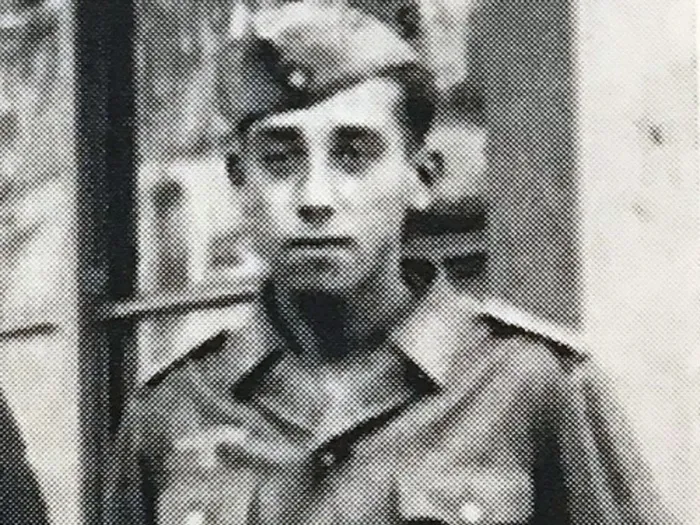
The Third Reich’s reign claimed more victims than can ever be accurately recorded. While the main focus of hatred, discrimination, and violence was aimed at Jewish populations, an array of Germans who did not fit the Reich’s definition of a “pure” racial profile were also victimized. This included individuals referred to as “Rhineland Bastards” – children born to German women and African colonial soldiers the French stationed in the occupied Rhineland after World War I.
One such individual was Hans Hauck, who was born in Frankfurt in 1920 to a German mother and Algerian father. Hauck described growing up feeling accepted by his family but the other children in his neighborhood quickly made him aware of his racial identity. However, Hauck had no problems joining the Hitler Youth as a young boy and later served in the Wehrmacht.
In an interview recorded late in his life, Hauck recalls the day his grandmother took him to the health office of the Department of Racial and Hereditary Welfare, where he would be involuntarily sterilized, receiving a vasectomy without a full anesthetic. Hauck then signed an agreement pledging not to marry or have any sexual relations with those deemed by the Third Reich to be Germans or half-Germans. In return, he was issued a sterilization certificate that allowed him to continue working on the railway.
Hauck later joined the German Wehrmacht on his second attempt (the first attempt ending in being deemed “unworthy” during his conscription process). It was only once the Wehrmacht became desperate for manpower that Hauck was permitted to join. Hauck saw the military as a 50/50 chance of survival, which he deemed better odds than remaining a civilian. Once in the Wehrmacht, Hauck quickly rose to Private First Class within his first six months of service. However, he did not completely escape harm as he was wounded multiple times and was a captive of the Soviet Army from 1945-1949. During his time in captivity, Hauck experienced the same treatment as his fellow German detainees, which Hauck regarded as the first time he felt truly equal to his countrymen. After his release, he returned to Germany and lived a quiet life until his death in 2003.
– Elizabeth Dullle (University of Missouri)